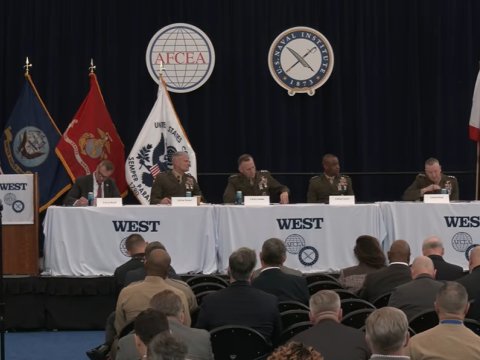U.S. Strategic Command Aims at Improving Cyberdefense
Cyberspace is the next great frontier for warfighters.
U.S. Strategic Command’s (STRATCOM’s) mission is to secure, defend and operate the Global
Williams notes that STRATCOM’s commander, Gen. Kevin P. Chilton, USAF, is the first combatant commander responsible for securing, operating and defending the GIG. Because of this unique responsibility, the command is interested in finding new ways to secure the GIG and the data that it carries. One way to find “out of the box” ideas is to solicit them from a variety of sources.
Although there are many cybersecurity conferences and symposia, Williams explains that the upcoming event in Omaha, Nebraska, is the first where attendees can present ideas to help the combatant commander carry out his mission in cyberspace. “There is a real chance to make an impact here. It’s not about replowing old ground. At this symposium we’re really after discovering what we don’t know and finding bright ideas, opportunities and new ways of looking at things that we can bring to our commander,” he says.
The event’s track sessions will provide attendees with the opportunity to participate collaboratively to solve a set of problems. The sessions are designed to capture information and provide it to Gen. Chilton. Symposium attendees will be members of the
Other issues that will be discussed include operating and securing supply chains, reacting to viruses and other cyber issues. “It’s not just about us, or the military or STRATCOM. It’s all of us trying to synchronize and provide a coherent approach to solving these issues,” Williams shares.
Operating in and across cyberspace is the theme of the AFCEA/STRATCOM cyber symposium “Advancing Cyberspace Capabilities to Deliver Integrated Effects,” which will take place on April 7 and 8 in Omaha, Nebraska. The goal of the symposium is to determine the challenges and opportunities to ensure that


Comments